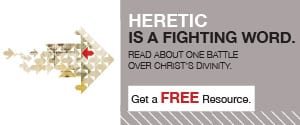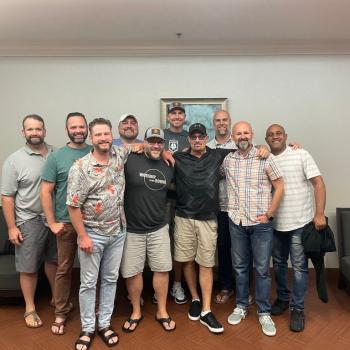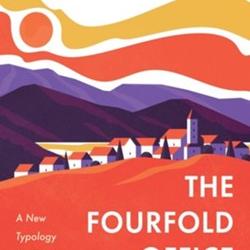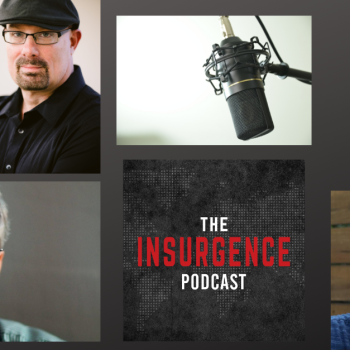It’s interesting to me that Justin Holcomb has just released a book about heresy.

I say “interesting” because another author and I have just written a new article on what we call “the H-bomb” — how Christians misuse the word “heresy” all the time. The article will be published this Fall, God willing.
In our article, we will show that the way the word “heresy” and “heretical” were used in the New Testament doesn’t at all map to how people commonly use it today. Neither does it map to the way pre-modern Christians used it.
That said, Holcomb’s book looks at how historic Christianity understood the word. And in his companion volume on the creeds and counsils, he explains what orthodox doctrine is exactly.
In Know the Heretics, Holcomb provides an accessible guide to the most significant heretical beliefs throughout Christian history. Significantly, most of them are alive today.
As a part of the KNOW series, the book is designed for personal study or classroom use, but it’s also good for small groups. Some of the heresies included are the requirement to obey the Law as a demand for salvation and the denial of the triune nature of God.
Heresy still exists today. Very often, someone will write me off because I root many of my books on ecclesiology in the Godhead–Father, Son, and Spirit–from before time.
(See Rediscovering the Triune Nature of God.)
While the understanding of the triune nature of God has been held by most Christians at most times, the modern Arians and Sabellians are still denying it.
Indeed, the false teachings of the past still make their rounds today.
Holcomb’s Know the Heretics is an easy to read primer on the topic.
Also part of the KNOW series is Holcomb’s Know the Creeds and Councils. This book covers the key statements of the Christian faith as held by most Christians during most times and includes a discussion of their historical context and why they are relevant today.
In my post On the Creeds, I outlined why I believe the historic creeds. (For this reason, I’ve gotten a lot of push-back from people in the Liberal and Emergent camps.)
Holcomb’s goal is “to provide an overview of the main historical developments of Christian thought” by walking readers through some of the most significant Creeds, Councils, Catechisms, and Confessions of the past 2000 years.
Holcomb’s book on the creeds and counsils includes some of the major Protestant creeds and confessions as well as the Catholic Creeds and Councils. Holcomb does a good job explaining each.
If you are someone who ministers God’s Word, you should have a handle on church history. You ought to know who Marcion, Arius, Sabellius, and Pelagian were and what they taught. Why? Because their sons and daughters still breathe oxygen today. You also should know something about the early Christian creeds. What they are and why they came into existence. These too are relevant for our time.
To put it into a sentence, to understand where one is going, one must understand from whence one has come.













